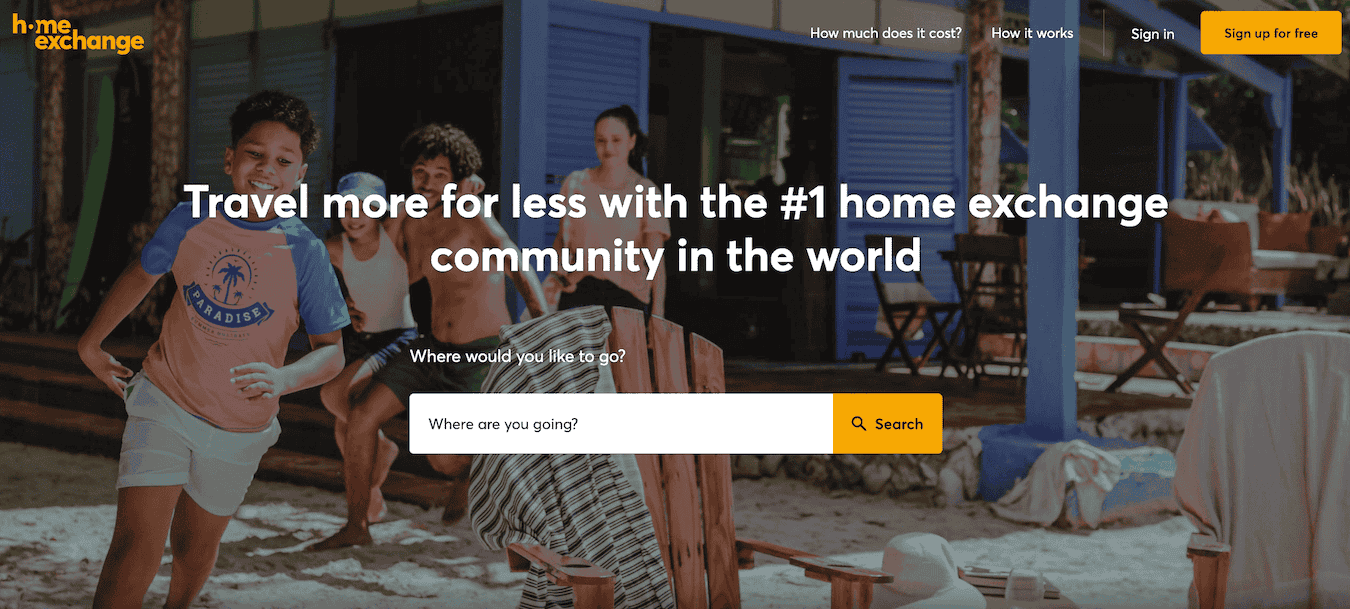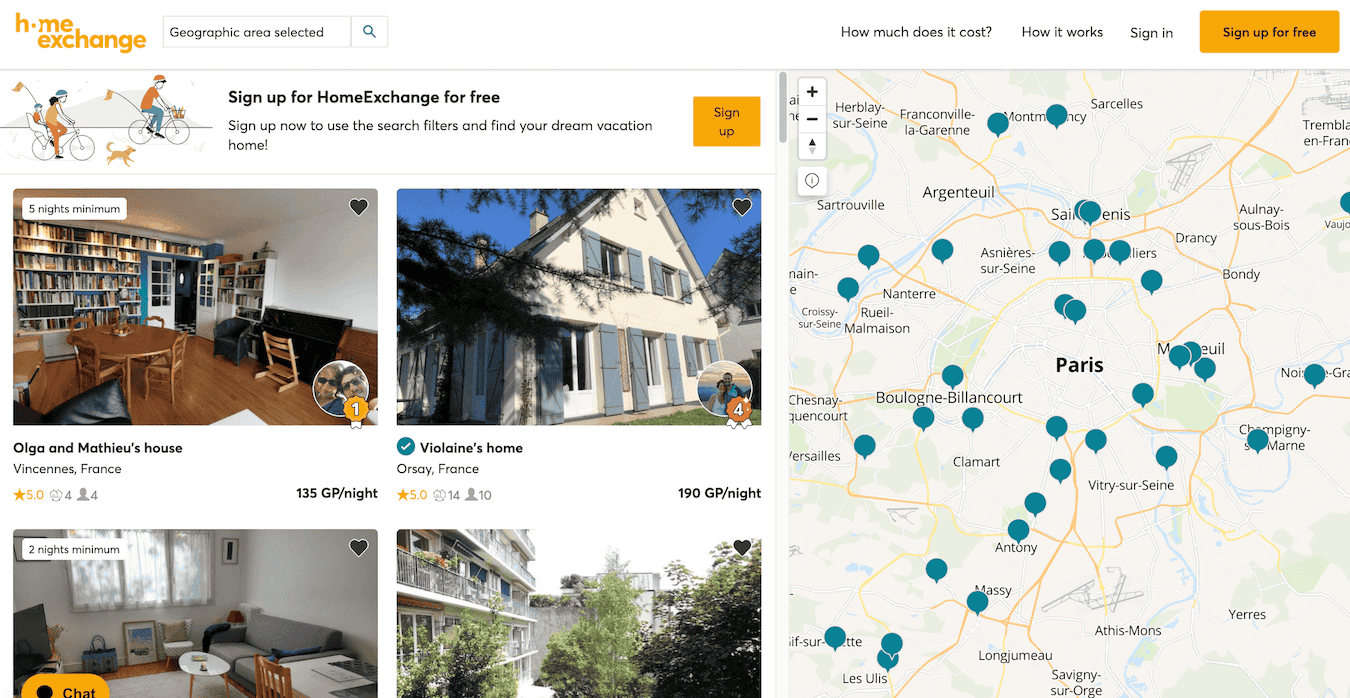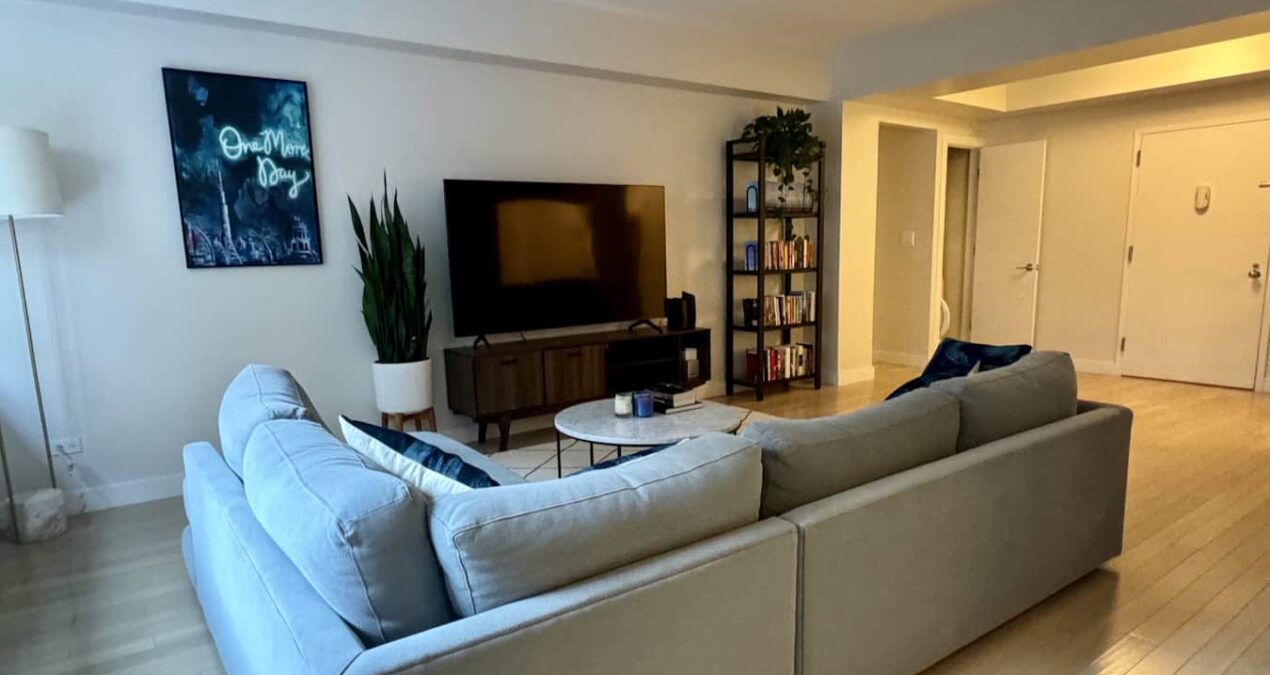Accommodation will always be one of your biggest travel expenses…but what if it wasn’t? What if you could reduce the cost of your accommodation to zero while still enjoying the comforts of home?
That’s what house swaps promise.
House swaps have been around for decades. It was the entire premise of the movie The Holiday (starring Cameron Diaz and Kate Winslet). They became all the rage but then were soon eclipsed by sites like Airbnb.
But as travel prices skyrocketed post-COVID, more and more people have turned back to house swaps as a means of saving money while they travel while still getting a local experience (but without the hassle of an Airbnb).
House swaps are exactly what they sound like. You sign up, list your home, and then swap with someone else in another city. They stay in your place and you stay in their place.
The biggest and most popular platform for swaps is HomeExchange.
And, in this post, I’ll go over everything you need to know to get started with a house swap and help you decide if HomeExchange is right for you.
What is HomeExchange?

Founded in 1992, HomeExchange is a network that facilitates swapping homes with another person or family. The company actually started as a mail-ordered printed directory before moving online. Today, there are over 200,000 members in over 155 countries. It’s the biggest and most popular house swap platform.
Currently, it costs $220 USD per year for unlimited swaps.
It’s easy to use too. You just have to make a free account, fill in your profile (including plenty of photos and detailed descriptions of your home), verify your identity, and pay the fee.
Once you do that, you’re ready to start looking for exchange opportunities.
You can find home exchange opportunities by simply browsing the website (there’s a handy map function so you can see where opportunities are) or narrowing your search by using the website’s filters. You can filter by the number of bedrooms, if it’s pet friendly, accessibility, and amenities (like swimming pools).

When you find a home you’re interested in, all you need to do is reach out via HomeExchange’s secure messaging system, express your interest, and get the conversation rolling.
There are two types of exchanges: what HomeExchange calls “The Classic Exchange” and an “Exchange with GuestPoints”.
Classic Exchange
The Classic Exchange is probably what you think of when you think of a home exchange: you stay in someone’s home, and in exchange, they stay in yours. This can be at the same time or at different times, but the main point is that it’s reciprocal.
But what if you want to stay in someone’s home and they’re not interested in coming to yours? That’s where GuestPoints (GP) come in.
What are GuestPoints?
GuestPoints (GP) are HomeExchange’s point system. You’ll get 500 when you sign up and you earn more by hosting members at your home.
If you want to stay somewhere that doesn’t want to do a classic exchange, you can give them GP to stay in their home. They can then use those points to stay in someone else’s home.
The number of points required varies per stay, but it’s generally between 100-320 GP per night. That means with your bonus welcome points you’ll be able to give the platform a try right away!
Is HomeExchange Safe?
Staying in a stranger’s house can feel odd. I get it. But using HomeExchange is very safe. Much like sites like Airbnb, users have to verify their identity and submit proof of address and create a profile, so you can see photos of where you are staying before you go.
Additionally, you have to pay a $500 USD deposit when you book a home. That means that if you accidentally break something in the home you are renting, the homeowner can use that deposit to recover the cost. HomeExchange also includes damage coverage up to $1,000,000 USD, which means you really don’t need to worry about damage to your house.
Additionally, HomeExchange has a Compliance Guarantee that states that if the accommodation does not meet the initial home description, they will offer an alternative solution.
On top of that, if your swap cancels last minute, HomeExchange will provide compensation of up to $840 USD/week if you cannot find a replacement.
But perhaps most importantly, every guest on HomeExchange is also a host. That imbues the system with mutual respect and trust. Members treat homes how they want their own home to be treated, which ensures that the community stays respectful and considerate.
So, in short, it’s a safe platform that you can use with confidence. They also have 24/7 support in case you have questions or run into a problem or emergency.
What I Liked About HomeExchange
For me, the main draw for using HomeExchange is that it lets you live like a local. It’s like a mix between Airbnb and Couchsurfing. Homeowners can share their favorite things to see and do, give you personalized suggestions on where to eat, and so much more. You’re able to get all kinds of insider tips and advice that you wouldn’t otherwise, and I think that is vital for getting off the beaten path and deepening your travels.
Another great perk is their private Facebook group. It’s another awesome way to connect with fellow travelers and get travel tips and advice that you won’t find elsewhere. I’m a big fan of travel Facebook groups as you can really get a ton of great tips and info from them.
Also, if you don’t find a swap in your first year, HomeExchange waives the fee for the second year. That’s a nice bonus and something that I think new members who don’t travel a ton will really appreciate.
Plus, I also love that homes are available in 155 different countries and there are over 200,000 members so you do get a lot of options. There’s 24/7 customer support and they will help you out financially if your swap cancels so you aren’t left in the lurch and stuck in a new city!
Frequently Asked Questions About Home Exchange
Can I do a home exchange if I rent (not own) my place?
Yes! You just need to verify the guest policy in your rental agreement/lease. When in doubt, let your landlord know so there aren’t any surprises.
Can I do a home exchange if I have pets?
Yes! Just be sure to list your pets and their needs in your profile. If you have pets that will be staying at home, be sure to detail their needs and communicate clearly with the member who may be staying there. If you live with pets but they are traveling with you, you’ll still want to list their presence in case of allergies. If you want to travel somewhere and stay in another member’s home with your pet, again you need to be clear about this when arranging a potential exchange.
Can I host people in my spare room as an exchange?
Yes. Just be sure to indicate that this is the situation in your listing by selecting “private room” rather than “whole unit.” Also, communicate clearly when arranging the exchange so everyone knows what they’re signing up for!
Is there a minimum number of nights required for an exchange?
There is no site-wide minimum number of nights, though you will find that many hosts do set their own minimums (generally 3-7 days). If you’re traveling for an exchange though, you’ll likely find you’ll want to stay at least that long!
HomeExchange is a great platform for people who want the perks and comforts of a private home in a local neighborhood but on a budget. Additionally, this is a great way to connect with a family. I think sharing a home creates a sense of intimacy and you might make some friends out of it. It’s like adult Couchsurfing and I made a lot of friends when I used that.
It’s a cool platform that can help you have more unique, affordable travels while also connecting you to interesting locals who can share their tips and insider advice.
Click here to learn more and sign up today!
Book Your Trip: Logistical Tips and Tricks
Book Your Flight
Find a cheap flight by using Skyscanner. It’s my favorite search engine because it searches websites and airlines around the globe so you always know no stone is being left unturned.
Book Your Accommodation
You can book your hostel with Hostelworld. If you want to stay somewhere other than a hostel, use Booking.com as it consistently returns the cheapest rates for guesthouses and hotels.
Don’t Forget Travel Insurance
Travel insurance will protect you against illness, injury, theft, and cancellations. It’s comprehensive protection in case anything goes wrong. I never go on a trip without it as I’ve had to use it many times in the past. My favorite companies that offer the best service and value are:
Want to Travel for Free?
Travel credit cards allow you to earn points that can be redeemed for free flights and accommodation — all without any extra spending. Check out my guide to picking the right card and my current favorites to get started and see the latest best deals.
Need Help Finding Activities for Your Trip?
Get Your Guide is a huge online marketplace where you can find cool walking tours, fun excursions, skip-the-line tickets, private guides, and more.
Ready to Book Your Trip?
Check out my resource page for the best companies to use when you travel. I list all the ones I use when I travel. They are the best in class and you can’t go wrong using them on your trip.



